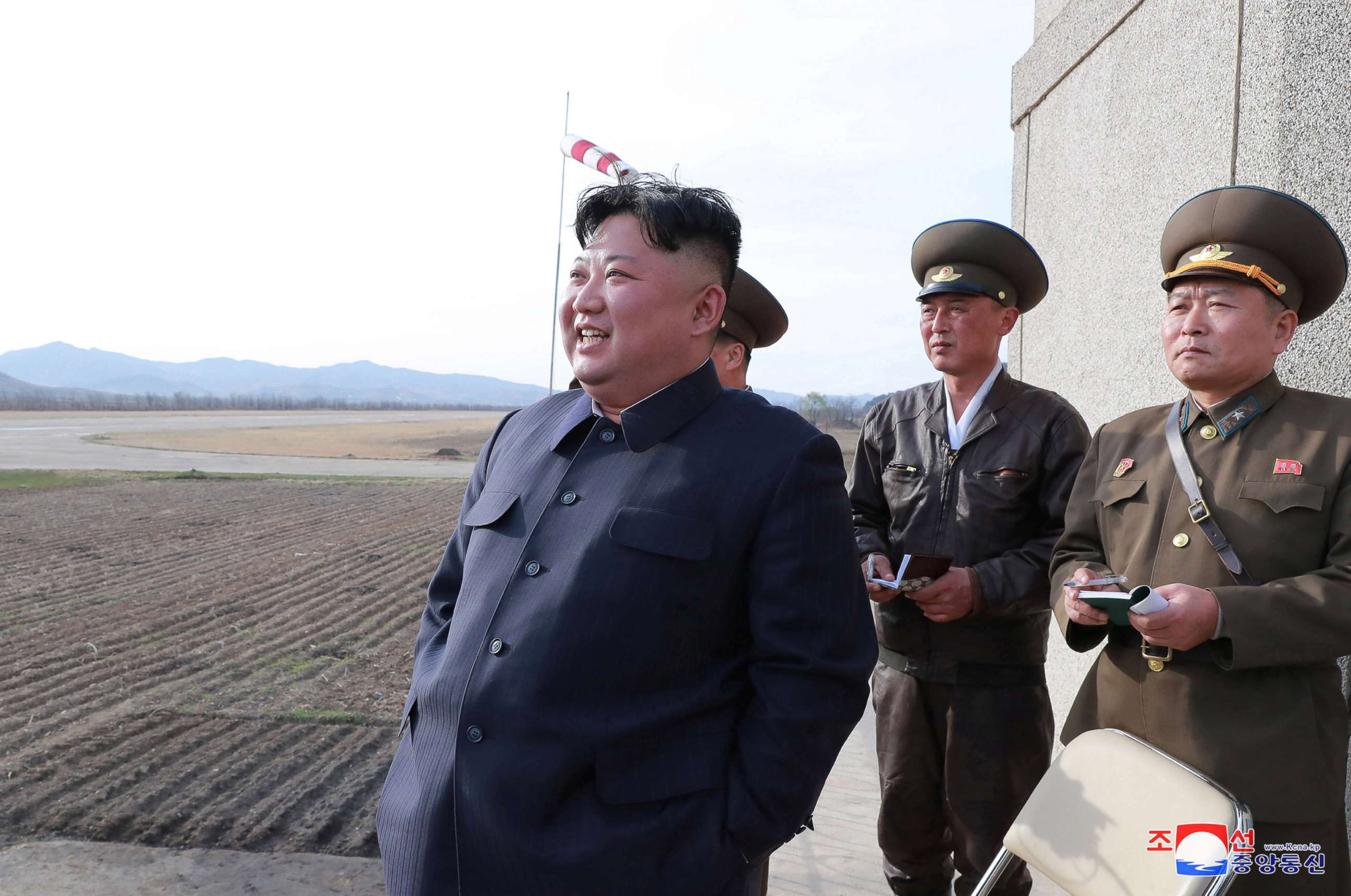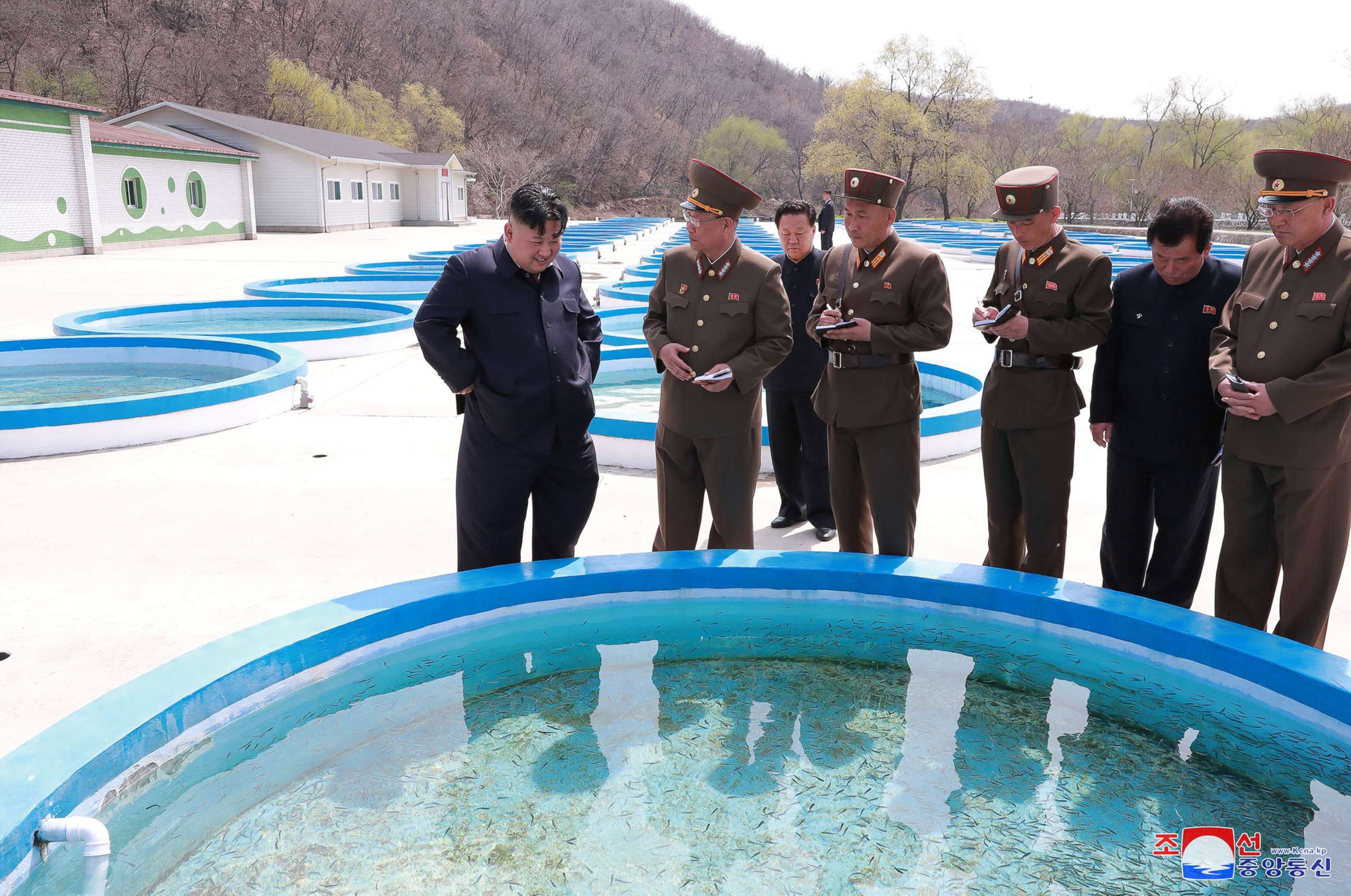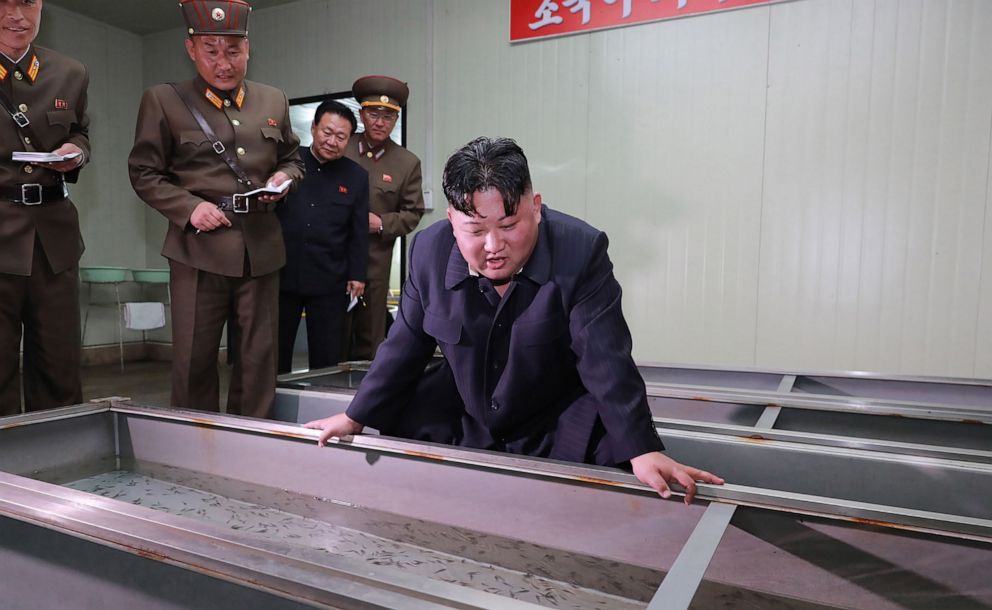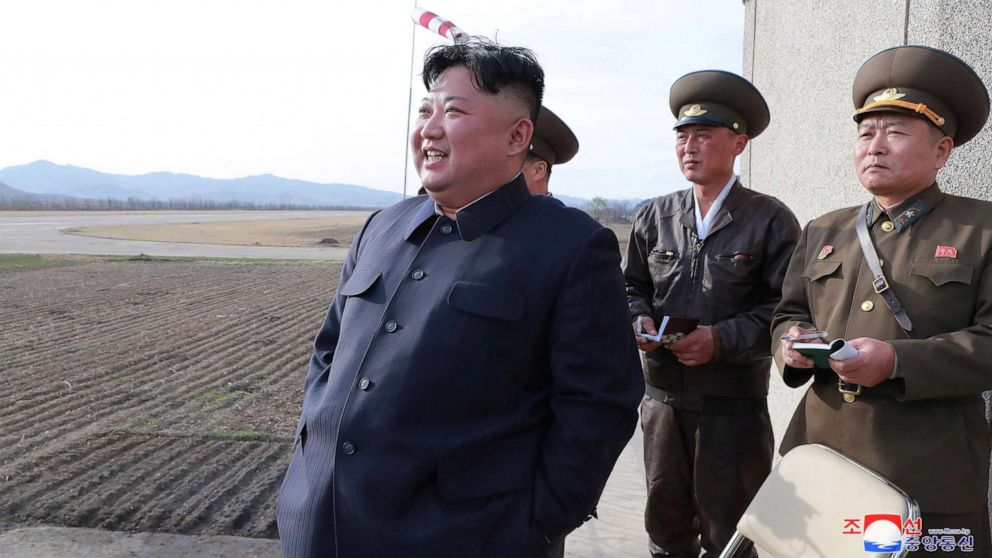North Korea's weapon-test claim attempt to get U.S. back to table: Analysts
SEOUL, South Korea -- North Korea's announcements this week that its leader Kim Jong Un had inspected military sites and overseen the test-firing of a new weapon appear to be an attempt to get the United States back to the negotiating table, analysts said.
The North's state media reported this week that Kim inspected the country's military sites two days in a row, with the official Korean Central News Agency underlining the importance of "strengthening combat power."
KCNA reported Thursday that North Korea test-fired a new type of tactical guided weapon the day before, while on Tuesday, state media said Kim inspected an air force training site.

Analysts in South Korea said North Korea was trying to send a message to the U.S. and South Korea.
North Korea’s message was directed at getting the U.S. to return to the negotiation table, Shin Beom Chul, the director of the Center for Security and Unification at Asan Institute for Policy Studies, in Seoul, South Korea, told ABC News.
"Through their tactical guided weapons test, they want to let the international community know, they are capable of finding a new path if the negotiations continue like the way it is now," Shin said. "It was air force inspection yesterday and short-range missile test today, so we can even go on to guess there may be a nuclear provocation next year."

The message is indirect, but obviously targeting the U.S., analysts said.
"North Korea is displaying a passive military demonstration with jets and conventional weapons, since they cannot provoke U.S. directly with nuclear weapons or long-range missiles," Park Hwi Rak, a political science professor at Kookmin University, in Seoul, told ABC News. "By that they want to let others know, they are not satisfied with the stalled sanctions negotiations with the U.S."
North Korean media introduced the tests as tactical guided weapons, implying that the weapons may be for battlefield purposes, not posing actual threats on the U.S. mainland.
"Firing ballistic missile may provide reason for additional sanctions from the international community so North Korea chose to voice their opinion without receiving negative response on their military actions," Moon Sung-muk, an arms-control expert at Korea Research Institute for Strategy, told ABC News.

South Korean experts added that Kim's consecutive inspection at military sites not only aimed for voicing their presence, but also to relieve anxiety among the North Korean people by reassuring the leader’s determination in strong national defense.
"Kim Jong Un chose to strengthen its bargaining power and at the same time boost its military spirits by giving spotlight to its powerful leader," Moon said.
South Korea's presidential office took a cautious approach, declining to issue an official comment on the test. The country’s Joint Chiefs of Staff told reporters they are "analyzing North Korean leadership’s movement from various angles, and and also the newly introduced tactical guided weapons."




